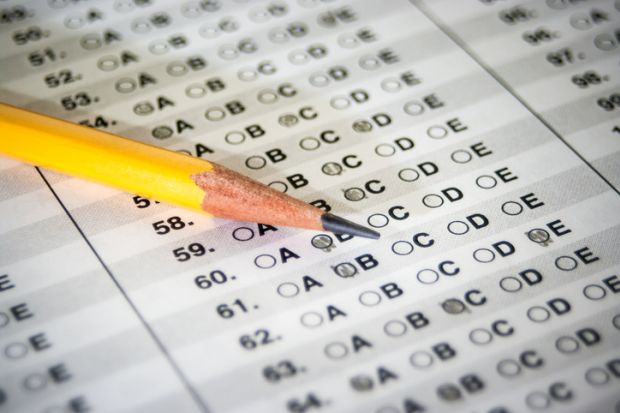The leading US college admissions test, the SAT, is moving to an online format, aiming for a simpler and more adaptable tool at a moment when institutions are increasingly rejecting standardised assessments.
“The digital SAT will be easier to take, easier to give and more relevant,” said Priscilla Rodriguez, vice-president of college readiness assessments at the College Board, in announcing the decision on behalf of the century-old testing industry giant.
Major changes accompanying the shift including reducing the total SAT test time from three hours to two, owing to overhauls that include shorter reading passages and the permitted use of calculators throughout the mathematics section.
Ms Rodriguez also promised that the College Board would begin “taking full advantage of what delivering an assessment digitally makes possible”, including the use of adaptive models that adjust the difficulty of questions as students move through their work.
The College Board said it will make the change to digital formats next year for students abroad and in 2024 for those in the US. Every student will use a unique test form, and the maximum score will remain at 1,600, it said.
The College Board is acting at a moment of great uncertainty for the SAT and the other leading standardised college admissions test, the ACT. The tests have increasingly become recognised as reinforcing inequities in higher education, by favouring wealthier families with the resources to help their children prepare.
Nearly 80 per cent of bachelor’s degree-granting colleges and universities are not requiring scores from either the SAT or the ACT from students seeking to enrol this coming autumn, according to the National Center for Fair & Open Testing, a leading critic of standardised admissions exams.
In announcing the online move, College Board officials noted that many institutions remain willing to consider standardised tests scores in their admissions processes, and that many applicants still want to take them.
Students taking the online tests will be able to use their own electronic device, one issued by their school or equipment supplied by the College Board. The online model will make the testing more secure and less subject to mass cancellations, and will include systems to resume tests in progress after any losses of power or internet connection, the company said.
The College Board also reiterated its past attempts to portray the tests as having some positive effect on racial and income equity by giving low-income students an objective measure by which to compete with privileged students who can pad their application profiles with costly extracurricular experiences.
That kind of argument remains a “self-serving, contrived College Board talking point”, said one leading sceptic of standardised testing, Jon Boeckenstedt, the vice-provost for enrolment management at Oregon State University.
“For every first-generation and/or low-income and/or student of colour the SAT has helped, it’s almost certainly hurt hundreds, if not thousands,” he said. “It’s myopic and duplicitous to measure the small victories without measuring the massive real and opportunity costs to society.”
Any introduction of adaptive questions is unlikely to make the SAT any fairer, Mr Boeckenstedt said.
The College Board is a non-profit organisation dating back to 1899. It ran pilots of online SAT delivery this past November, both in the US and abroad. It said that 80 per cent of participating students found the version less stressful and that “100 per cent of educators reported having a positive experience”.




